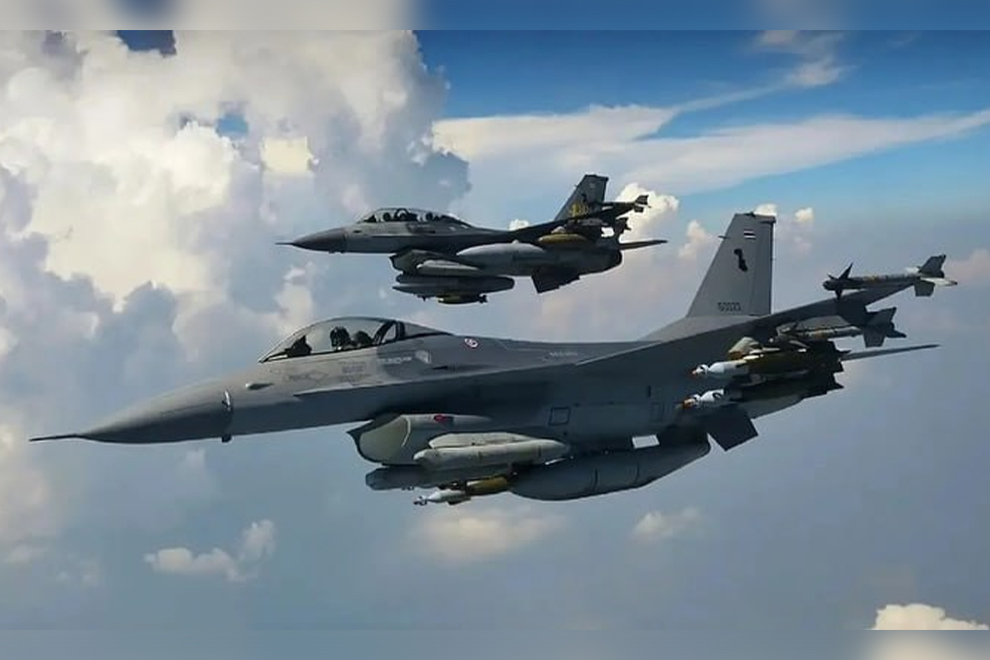
Thai F-16 fighter jets have conducted airstrikes on Cambodian soil. FB
Thailand’s recent military actions against Cambodia go far beyond a mere border dispute. They reveal a clear pattern of violations of international law. Driven by internal political motives, they are harming civilians, cultural heritage and regional stability.

Thailand’s reported use of cluster munitions, banned for their long-lasting and indiscriminate impact on civilians, raises serious legal concerns. Although Thailand is not a party to the 2008 Convention on Cluster Munitions, this action may violate customary international law and the Rome Statute, which classifies their use as a potential war crime.
On July 24, Thailand’s use of US-made F-16 fighter jets led to bombings of civilian targets, including the death of a 70-year-old Buddhist abbot and five injured at the Ta Mone Senchey pagoda in Oddar Meanchey province. The F-16s also bombed a nearby health centre, violating the Geneva Conventions that protect medical facilities and religious sites. This is not to mention that under US law, specifically the Arms Export Control Act, Thailand agreed to use the US-supplied F-16s only for purposes such as self-defence, internal security or peacekeeping missions (e.g., UN missions). They are prohibited from using these fighter jets for offensive attacks against other countries, such as Cambodia.

On the same day, Thailand conducted “precision” strikes that inflicted significant damage to Preah Vihear Temple, a UNESCO World Heritage Site. Thailand could face sanctions and suspension of membership privileges under the 1972 UNESCO World Heritage Convention. The International Court of Justice affirmed in 1962 and again in 2013 that this area is Cambodian sovereign territory. Any military action threatening the temple raises serious concerns about international law violations and Cambodia’s territorial integrity.

The most recent revealing of Thailand’s intentions was its handling of ceasefire negotiations. Cambodian Prime Minister Hun Manet disclosed last night that both countries had initially agreed (through the mediation of Malaysia, as ASEAN chair) to a ceasefire at midnight on July 24. but just over an hour after the agreement was reached Thailand reversed its position and withdrew from the agreement. This diplomatic reversal has been cited as evidence of Thailand’s bad faith in peace talks and suggests that the conflict may serve domestic political aims rather than genuine security concerns. Manet emphasised Cambodia’s commitment to peace, stating clearly that “Cambodia did not initiate this fighting”. and highlighting Thailand’s role as the aggressor.

At the same time, we recognise that the Thai people have suffered as well, lives have been lost, families displaced and communities torn apart on both sides of the border. In this fight, no one wins. Only pain remains. In these difficult times, we call on Thailand to stop its aggression, respect international law and return to the path of diplomacy. Cambodia seeks peace, not revenge. We believe in the power of dialogue, the strength of international cooperation and the healing force of compassion.
We hope that the UN Security Council’s urgent private meeting on the Cambodia–Thailand border clashes will bring forward a peaceful solution to end the violence and restore stability. Let us choose peace over pride, diplomacy over destruction and love over hatred for the sake of our people, our future and generations yet to come.



